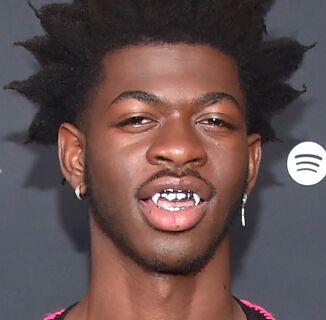The Democratic National Committee is launching a toolkit for LGBTQ voters ahead of the 2018 primaries to ensure their voices are heard at the ballot box in November.
The LGBTQ Voting Rights Toolkit is designed to help address the unique challenges that queer and transgender people face when voting in local and national elections. Chief among those issues are voter ID laws making it more difficult for trans individuals to register. Should their gender presentation not match their voter ID or the name on their voter registration not be updated, transgender voters could be turned away at the polls.
Thirty-four states have some form of voter ID laws on the books, and half of those states require voters to present an ID card with a photo.
These policies are a major barrier to entry for a majority of transgender and non-binary individuals. According to the Human Rights Campaign, just 21 percent of trans people have all their documentation updated. Another survey found that 40 percent of respondents reported being harassed in the past when presenting an ID.
For trans people who live in the 17 states that do allow voters to present non-photo identification, the LGBTQ Voting Rights Toolkit states that “a document that proves a voter’s name and residency, such as a bank statement or utility bill” will suffice. In other cases, the Democratic National Committee advises trans and nonbinary voters to “check [their] state laws to see what alternative IDs you can use.”
The toolkit also advises LGBTQ voters on what to do in instances where they experience harassment from poll workers or are currently homeless, as queer and trans people are disproportionately likely to lack the stable address necessary to register for voting in a majority of states.
DNC Chair Tom Perez claimed in a statement provided to INTO that having this information will be critical for LGBTQ voters in a pivotal midterm election.
“The DNC’s LGBTQ Voting Rights Toolkit gives someone the resources they need to make sure they aren’t turned away at the polls because of who they are or who they love,” Perez said. “Too much is at stake this November, especially for the LGBTQ community, for any voter to stay home.”
In addition to being posted online, the toolkit will be distributed at Pride events across the United States. Field organizers with the DNC will also make the guide available at LGBTQ-specific events throughout the year.
Lucas Acosta, director of LGBTQ media for the DNC, stressed the importance of ensuring safe access to voting among queer and trans people following widespread reports of voter intimidation during the 2017 special election between Doug Jones and notorious homophobe Roy Moore in Alabama. If LGBTQ voters fear they may be discriminated against in 2018, they may choose to stay home.
Acosta said the DNC will continue to do everything in its power to ensure LGBTQ people know their rights.
“We have seen Republicans suppress the fundamental right to vote across the country,” Acosta told INTO over the phone. “We know that when more people vote, that Democrats win.”
The 2018 midterms, though, will hold a special importance for LGBTQ voters during a presidency in which the community has found itself continually under attack. Since Donald Trump took office in 2017, Acosta said the president has repeatedly illustrated that his administration is “completely disinterested in helping our community, acknowledging our community, or including us on even basic things like websites.”
Just this week, the long-expected retirement of Justice Anthony Kennedy, a moderate responsible for authoring many of the Supreme Court’s most progressive pro-equality rulings, illustrated just how vulnerable LGBTQ people are during a contentious political moment.
Given that Trump is likely to fill Kennedy’s seat with an arch-conservative jurist in the vein of Neil Gorsuch, many are looking to the 2018 midterms as a referendum on the future of LGBTQ rights in America.
That’s why Acosta claimed it is critical for LGBTQ people to keep fighting back—by turning out to vote.
“Our rights are on the ballot, whether its a ballot initiative or a candidate themselves,” he said. “LGBTQ people need the resources—just like every voter does — to make sure that when they’re going out to the polls, their voice is heard because every vote matters.”
Help make sure LGBTQ+ stories are being told...
We can't rely on mainstream media to tell our stories. That's why we don't lock our articles behind a paywall. Will you support our mission with a contribution today?
Cancel anytime · Proudly LGBTQ+ owned and operated
Read More in Impact
The Latest on INTO
Subscribe to get a twice-weekly dose of queer news, updates, and insights from the INTO team.
in Your Inbox












